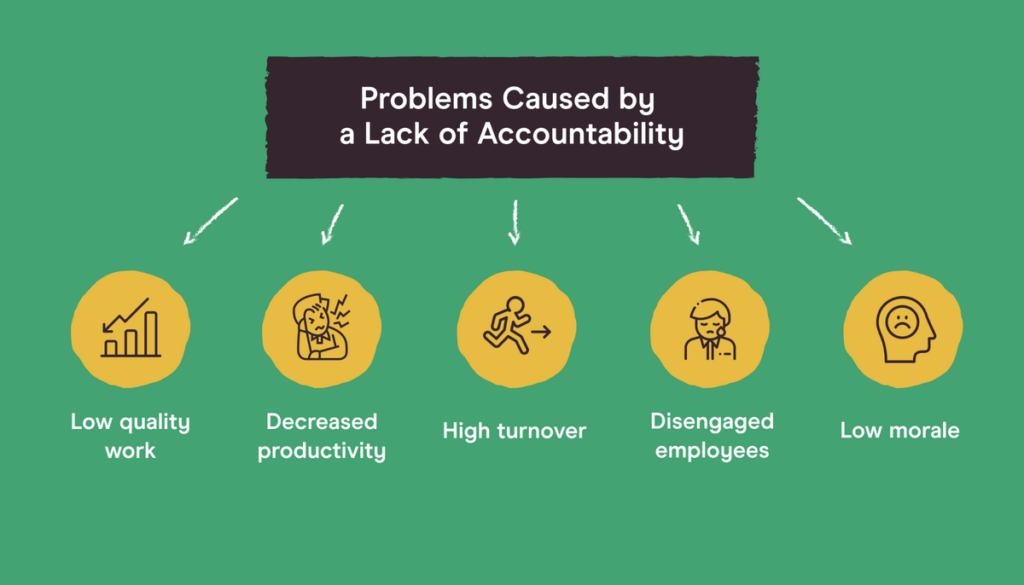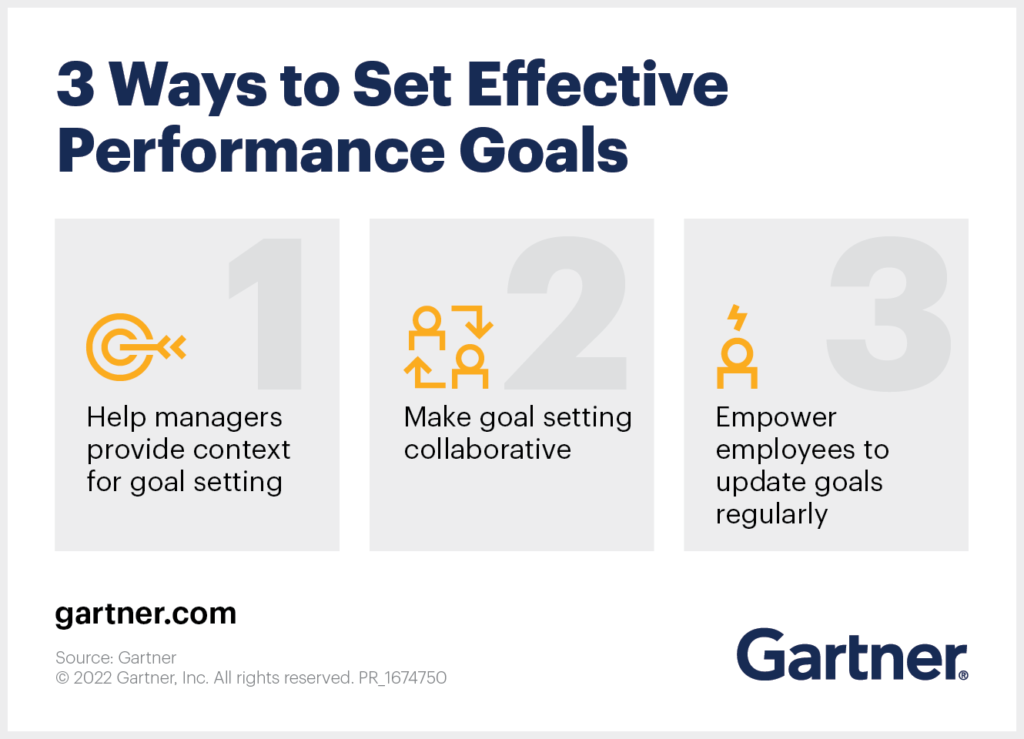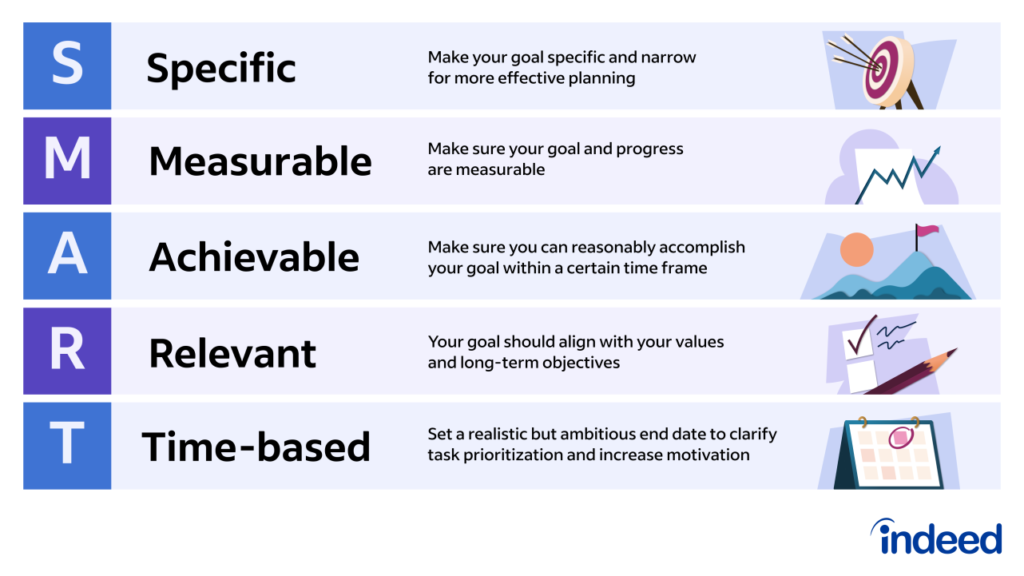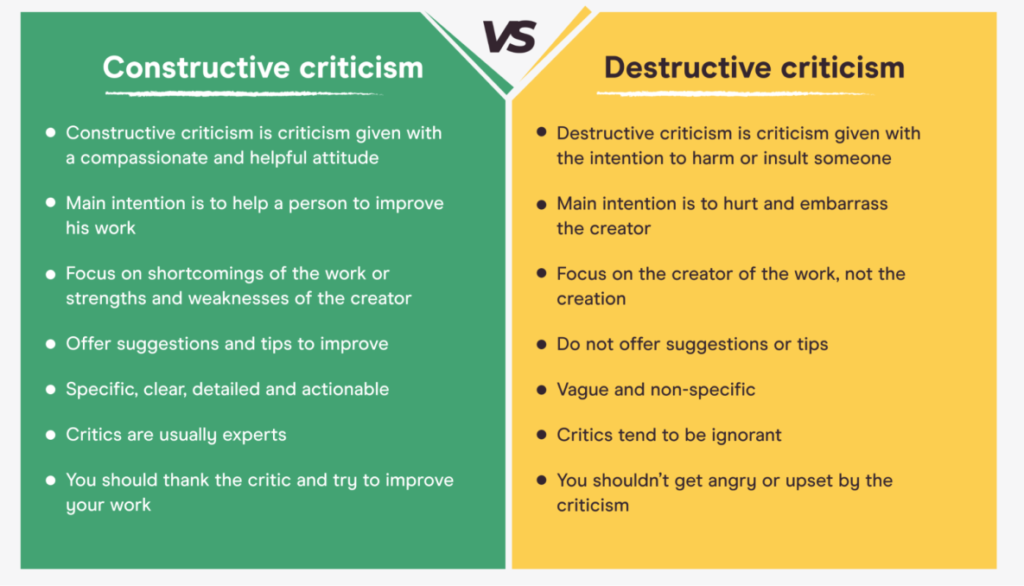How to Improve Accountability in the Workplace

As employee accountability becomes increasingly important in the workplace, organizations seek to cultivate a positive company culture that encourages responsibility and ownership. In a company, accountability is not limited to individual employees but extends to departments and the organization as a team as well.
A culture of accountability fosters innovation, collaboration, and continuous improvement, as employees are encouraged to take risks, learn from their errors, and share their knowledge and expertise. However, building accountability in employees isn’t always easy. Strategies need to be implemented that will help create an environment of trust and personal responsibility.
What is Accountability in the Workplace?
Some scholars have stated that personal accountability is influenced by the company’s organizational structure, its workplace culture, and the policies and procedures it adopts. Referring to accountability at a single level is inadequate and misleading. Therefore, it is important to take a more holistic view of accountability and consider that at all levels of the company.
Accountability in the workplace means that “there is the willingness of taking responsibility for one’s actions and the consequences of those actions, either to be rewarded or sanctioned.” This means that employees and leaders alike are expected to take ownership of their work and results, as well as the decisions they make. It also entails demonstrating integrity in all interactions with colleagues, customers, and partners.
What Are the Consequences of a Lack of Accountability in the Workplace?
Although evidence suggests that highly accountable employees, teams, and organizations tend to be more successful, accountability in the workplace is passing through a crisis nowadays. Research shows that companies are having a difficult time building an accountable organization, and is often considered purely consequential, top-down, and repressive by many. This can lead to an environment of fear rather than one that encourages risk-taking and innovation.
Teams Failing to Meet Expectations
When the staff fails to meet goals, organizations often struggle with how to address the issue. Without team accountability, there are no consequences for poor performance and this can lead to a lack of motivation and employee engagement. Failure to address accountability issues can create a breeding ground for unethical behavior, resentment, and low team morale.
Escalating Staff Issues
These accountability issues can grow to the point that they become increasingly difficult to manage. When accountability is lacking, staff tend to focus on blaming each other rather than collaborating to solve problems. This can create an environment of resentment and conflict, leading to costly delays and quality issues.
Increasing Disengaged Teams
When accountability is not present, employees often feel disconnected from the company and unmotivated. Without feedback or guidance, employees feel like their efforts are going unrecognized and unacknowledged. This can lead to a decrease in productivity and an increase in absenteeism.

Effective Ways to Show Accountability in the Workplace
Every workplace culture has its own way of handling employee accountability, but there are some general strategies that can help foster an environment of trust and responsibility starting from managers and projecting them to the whole team.
For a Team Member:
When you are part of a team, every decision you take can affect/benefit/impact the lives of other staff members. To ensure your work contributes to a successful project, there are a few things you can do:
Meeting Deadlines
Fulfilling deadlines is a crucial aspect of demonstrating personal accountability in the workplace. By completing tasks and projects on time, employees show that they are dependable and capable of fulfilling their duties. Avoiding missed deadlines builds trust with colleagues and superiors, and also demonstrates a sense of commitment to the company and its goals.
Taking Responsibility
When it comes to taking accountability in the workplace, embracing responsibility for your errors is an essential part of the process. Blaming others for your errors only creates an organization’s culture of mistrust and defensiveness, which can lead to more mistakes in the future. By owning up to your mistakes, you demonstrate accountability and ownership of your work.
Active Communication
When workers communicate clearly and regularly with their managers and colleagues, it promotes accountability and demonstrates their dedication to their work. Active communication involves more than simply sharing information; it involves actively listening to others, asking questions, and providing feedback in team meetings.
For Leaders:
When leading a team it can be easier to demand accountability from others, but managers must also take responsibility for their own actions and decisions. Accountable leaders should model the behavior they want to see in their teams and strive to create a culture of ownership, trust, and respect that values accountability as a core value.
Leading by Example
Managers who hold themselves accountable for their actions and decisions are more likely to inspire their staff members to do the same. By taking personal responsibility for mistakes and errors, managers can create an environment in which everyone feels comfortable admitting their own errors and learning from them.
Setting Clear Goals
Unclear goals and objectives can lead to confusion, frustration, and a lack of direction for workers. A survey by Partners in Leadership stated that 85% of the surveyed participants expressed that they were uncertain what their organization’s goals are aiming to accomplish.
Is your company clear about the expected results? Managers have a crucial role to play in setting clear goals for their staff and metrics defined to measure success. They must communicate the goals and objectives of the company, as well as what is expected of each employee to achieve those goals.

Providing Feedback
Feedback is about giving employees constructive insights into their performance metrics and helping them understand how they can improve. When managers provide feedback, i.e. direct reports, they help employees track their progress toward their goals and identify areas where they can improve their work. This creates a team accountable for every project, helping them to be high performing teams.
Feedback should be:
- Specific
- Actionable
- Focused on the employee’s behavior or performance
- Timely Pertinent
Examples of Accountability in the Workplace
- Admitting mistakes: When you make a mistake, it’s important to take ownership of it. This shows that you are liable for your actions and will be responsible for any negative consequences.
- Meeting deadlines: If you have been assigned a task with a specific deadline, it’s important to meet that deadline. This shows that you are reliable and can be counted on to complete certain tasks in a timely manner.
- Being transparent: If you are working on a project or task, it’s important to keep everyone informed about your progress. This shows that you are willing to be transparent about your progress.
- Taking initiative: If you see a problem or issue that needs to be addressed, take the initiative to address it. This shows that you are held accountable for the accomplishment of the staff or project.
How to Increase Accountability in the Workplace? 12 Strategies & Tips
Establishing a company culture of accountability and transparency can be difficult, but it’s essential for the success of any business. Following a guideline will help you to better boost accountability among your staff. Here are some tips and strategies to help you increase accountability in the workplace:
Address Poor Performance and Issues Early On
We mentioned above how the lack of accountability in the workplace can pile up issues until you’re left with such a problem that you don’t know where or how to start. When left unaddressed, minor issues can quickly snowball into major problems that can have serious consequences.
To address poor performance early on, managers should have regular follow ups with their staff to ensure that everything is on track. During check-ins, they can identify any potential issues and discuss any changes or improvements that need to be made.
Restructure Goals to Start Anew
When a company struggles with accountability, it can create a negative ripple effect throughout the company. Employees may feel discouraged and unmotivated, leading to a decrease in productivity and overall job satisfaction. To handle this issue, restructuring goals and objectives can be an effective solution.
By creating new goals, employees are given a chance to start anew and leave any past errors behind. This can help to improve employee morale and create a more positive work environment. However, it is important to ensure setting realistic and achievable goals. Aim to set measurable, smaller goals that can be built upon over time.

Implement a Fair Deliverable Structure
Another way to help employees stay responsible is to implement a fair deliverable structure. This means setting clear expectations for each employee and outlining specific goals and tasks that they need to complete. When an employee knows exactly what is expected of them, it can help them stay motivated and focused on the task at hand.
This also helps managers keep track of progress and ensure that employees are meeting their deadlines and individualized goals. When employees have a framework they can follow, it can be easier for them to stay accountable and deliver results.
Offer Training and Learning Programs
Training and learning programs are essential for the growth and development of employees in a company. These programs offer a structured and systematic approach to improving skills, knowledge, and competencies. These programs can be delivered in various forms, such as online courses, workshops, and on-the-job training.
By investing in training and learning programs, companies can enhance employee engagement and motivation. Employees who are given the opportunity to learn and develop new skills are more likely to be satisfied with their jobs and show higher performance levels. Offering training programs can help companies stay competitive in their respective industries.
Make Project Progress Public
Making project progress public is a great way to improve accountability in the workplace and ensure that all employees are on the same page. This can be done by creating an online dashboard or other tracking system that allows everyone to view project updates.
Doing so will make it easier for managers to track progress and identify any issues quickly. It also helps employees stay motivated, as they can see how their work contributes to the overall success of the project. This can help to create a stronger sense of teamwork and foster collaboration within a company.
Provide Regular Feedback
As we mentioned earlier, providing regular feedback is essential in helping employees stay responsible. Giving constructive criticism and providing positive reinforcement can help to motivate employees and show them that their work is appreciated. It also helps to create a sense of trust and respect between employees and managers. When giving feedback, it is important to be specific and provide clear instructions. This will make it easier for employees to understand what they need to do to improve their performance.
Accept Constructive Criticism from Your Team
Feedback is a two-way road. Just as you should provide feedback, it is also important to be open to receiving criticism from your co-workers. This will help to create an environment of trust and openness, which is essential for any company. Kindly accepting feedback makes employees feel confident in expressing their thoughts and opinions without fear of judgment or retribution. This can lead to improved performance, as employees are more likely to feel responsible for their actions.

Be Kind to Your Team
It’s important to be kind and understanding when dealing with employees. No matter how frustrated you may get, try to remember that everyone makes errors at some point, and keeping a positive attitude will go a long way in increasing accountability in the workplace.
Being patient and understanding with your staff can help create a better work environment and foster accountability. This will also help to build trust between employees and managers, which is essential for a company to succeed.
Don’t Forego the Difficult Conversations
Remember the snowball of issues? This can happen when managers don’t want to be confrontational and put off having difficult conversations with their staff. This might seem easier in the short term, but it can cause more problems in the long run.
It’s important to address issues early on and have frank discussions about expectations and goals. Doing so will help to create a better understanding of roles and responsibilities and ensure that everyone is held liable for their actions. Additionally, having these frequent conversations can foster mutual respect between managers and workers.
Keep Resources at Hand
Having the proper resources can make it easier for employees to be held accountable. Make sure that everyone has access to the necessary tools and materials they need to complete their tasks on time. This might include software, online databases, or other resources. Additionally, create a support system where people can go to ask questions and receive assistance when needed.
Become Tech-Savvy
With the advancement of technology, there are now a variety of tools and platforms available to help organizations stay organized and keep employees accountable. Utilizing these technological resources can make it easier for managers to track progress, decrease the number of team meetings and ensure that specific tasks are completed on time. For example, project management software can provide an overview of the entire workflow, allowing everyone to track progress in real-time.
FAQs
How can I Improve my Sense of Accountability?
Take ownership of your actions and their consequences. Set clear goals and deadlines, and hold yourself liable for meeting them. Reflect on your errors and learn from them. Seek meaningful feedback and accept responsibility for making necessary changes.
What Are the 5 C’s of Accountability?
The 5 C’s of accountability are clarity, commitment, communication, consequences, and consistency. Clarity refers to having a clear task understanding. Commitment means taking ownership for the outcome. Communication involves actively listening and sharing progress. Consequences refer to any outcome of actions. Consistency is about maintaining hard work and dedication.
What Are the 4 Steps to Accountability?
The 4 steps to accountability are: 1) Owning the responsibility for the business outcomes, 2) Acknowledging errors and taking corrective action, 3) Communicating transparently with those involved, and 4) Learning from the experience to prevent future errors.
How Do You Overcome Lack of Accountability?
Take ownership of your work and actions, set clear goals and deadlines, communicate openly and regularly with stakeholders, seek feedback, and take responsibility for errors. Hold yourself liable and hold others accountable as well, while maintaining a positive and constructive attitude towards problem-solving.
Final Thoughts
Workplace accountability is an important aspect of any organization and cannot be overlooked. Taking the time to implement the tips mentioned in this article can help to create a positive work environment ensuring long term accountability and goal achievement. By creating a company’s culture of responsibility, organizations can improve morale, increase productivity, and foster collaboration among the entire team.
-The Monitask Team


